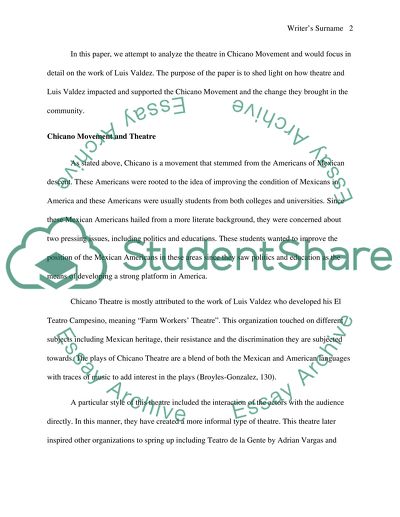Cite this document
(“Chicano Movement Essay Example | Topics and Well Written Essays - 1250 words”, n.d.)
Retrieved from https://studentshare.org/history/1604813-chicano-movement
Retrieved from https://studentshare.org/history/1604813-chicano-movement
(Chicano Movement Essay Example | Topics and Well Written Essays - 1250 Words)
https://studentshare.org/history/1604813-chicano-movement.
https://studentshare.org/history/1604813-chicano-movement.
“Chicano Movement Essay Example | Topics and Well Written Essays - 1250 Words”, n.d. https://studentshare.org/history/1604813-chicano-movement.


